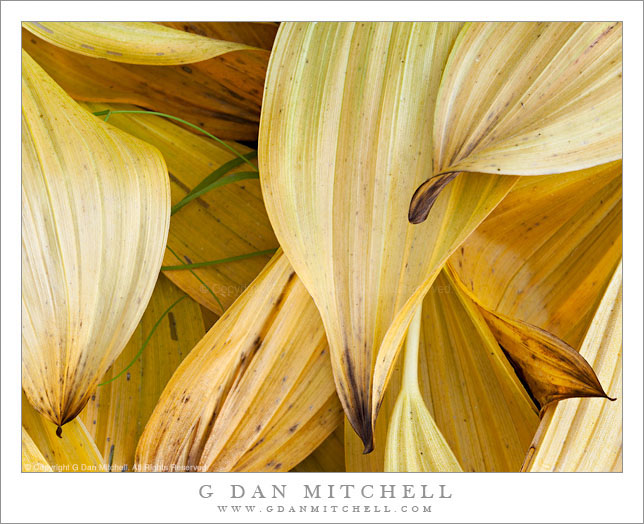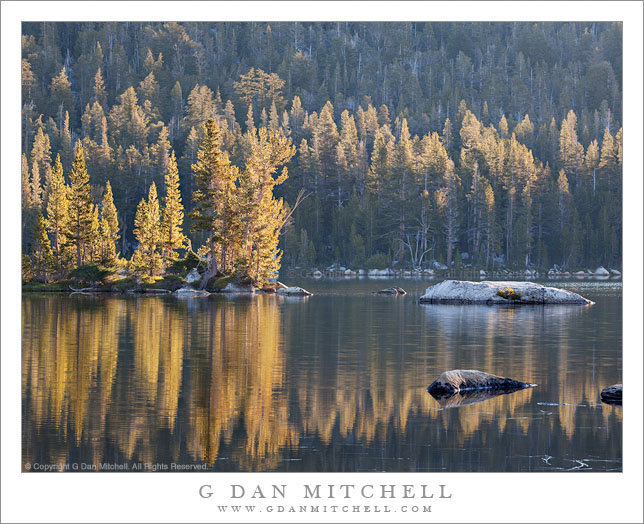Corn Lily Leaves, Autumn. Yosemite National Park, California. September 18, 2011. © Copyright 2011 G Dan Mitchell – all rights reserved.
Corn lily plants take on autumn colors in the Sierra Nevada, Yosemite National Park.
The corn lily plants are among my favorite markers of the passage of the short high Sierra summer season. When the high country first opens and water is everywhere, the first shoots look almost like unhusked ears of corn as they come up in wet areas. (I don’t think this is where the plant gets its name – more on that in a moment.) They quickly grow to several feet tall, clustered in thick bunches, as the mosquito season arrives – and at this time they are incredibly lush and green. At this time they are also a favorite subject for photographers. A few seem to sprout much taller than others and produce clusters of white flowers. Then as August wears on and the soil begins to dry the plants also begin to lose their lush quality and brown areas appear and perhaps some spots and holes appear in the leaves. Often by the end of the month I can find some that are starting to turn one of several shades: golden-yellow, tan, or very dark brown verging on black. By mid September few healthy looking plants remain and the stalks (which look very much like corn stalks) begin to fall over to the ground.
It hardly matters where this particular group of corn lily plants was growing, so I’ll just say that they were within a few minutes of our camp site. I can hardly ever pass up the opportunity to try to photograph this plant, no matter which stage of its life it is currently going through. These had fallen over and were rapidly losing what remained of their green color.
G Dan Mitchell Photography
About | Flickr | Twitter | Facebook | Google+ | 500px.com | LinkedIn | Email
Text, photographs, and other media are © Copyright G Dan Mitchell (or others when indicated) and are not in the public domain and may not be used on websites, blogs, or in other media without advance permission from G Dan Mitchell.
(Basic EXIF data may be available by “mousing over” large images in posts when this page is viewed on the web. Leave a comment if you want to know more.)




